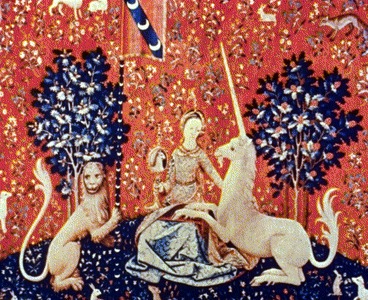

|
| |||||||||||||||||||||||||||||||||||||||||||||||||||||||||||||||||||||||||||
|
|||||||||||||||||||||||||||||||||||||||||||||||||||||||||||||||||||||||||||
|
| |||||||||||||||||||||||||||||||||||||||||||||||||||||||||||||||||||||||||||

the essential nature of myth
Welcome to The Essential Nature Of Myth, where The Muse Of Mythology explores the characteristics and qualities that make myths myths. about this featureAll myths adhere to a set of essential, defining characteristics that they hold in common with other myths. Every myth must exhibit these defining characteristics in order to earn the right to be called by that name. In this feature, The Muse Of Mythology explores myth with the objective of unearthing these defining characteristics—of elucidating and explaining them in such a way that virtually anyone who joins The Muse on this exploration will be able to recognize a myth when he see one. Here, The Muse will describe at the highest level of generality:
Defining a myth is not as easy a task as it may at first seem. Myths are not simple, juvenile, or naive things, even though they sometimes seem so at first sight. This feature will give visitors to these pages an appreciation of some of the subtleties of mythic systems. Why is an understanding of the essential nature of myth important? At heart, a myth is a good story that can be enjoyed more when one knows what to look for. Beyond that, myths harbor secret messages and meanings. Insight into the essential nature of myth equips a person with basic skills for unzipping a myth's hidden mysteries.
myth—what is it?What is a myth, plain and simple? A myth is a traditional story in which gods or god-like creatures are the central figures; their interactions with other kinds of creatures drive the story to a conclusion. As simple as this notion is, people often lose sight of it. From a scholarly point of view, a myth is a story typically involving supernatural beings or forces or creatures, which embodies and provides an explanation, cause, or justification for the history of a society, a religious belief or ritual, or a natural phenomenon. The term myth is derived in part from the ancient Greek word mythologia, which means a story-telling, a legendary lore, to relate myths. Its roots go back further, to the word mythos, which means narrative, speech, word, fact, story, and the word logos, meaning speech, oration, quote, story, study, reason, or argument. As we shall see, all of these definitions are apt and accurate descriptions of what a myth really is and what it does. A mythology is a collection or system of related myths. As a scholarly pursuit, the term mythology, which is derived from the term myth, means the study or exposition of myths. The word dates from as early the 15th century or before. Even then, interest in the study of myths was sufficiently keen to justify coining a word to describe it. In contemporary times, the term myth has taken on a variety of additional meanings, only one of which applies to the kind of myth The Muse is talking about in this feature. In the present era, a myth can be:
Here, The Muse is only interested in the first of these definitions. The last three definitions are popular notions which do not relate to the essential nature of myth. categories of mythFrom the point of view of character and subject matter, all myths fall into one of the following categories. Myths are about things such as:
As you think about these categories, keep in mind that neat categorizations like these are oversimplifications. No myth is about just one kind of character or subject; myths have connections between them, some of which are obvious and self-evident, others subtle and hidden. Myths have purposes, objectives, messages, hidden meanings, subtexts, and agendas. From this list of characters and subjects, it's easy to see why myths play so important a role in expressing and shaping human culture. While virtually all civilizations create mythologies, and while all myths fall into basically the same categories, the myths of different civilizations have different stories to tell and different messages to send because each civilization approaches life with its own values and experiences. Depending on the myth, the story told by a myth might have some combination of the following objectives:
The above list of doesn't stop at the last bullet; there are many more objectives that a myth can have, but you see how it goes. A mythical story exists for you to enjoy for its own sake; at the same time it gets across a serious message in a way that's easy to swallow, remember, and accept. more about the essential nature of myth
ETAF recommends...Coming.
Search this web site with Electricka's Search Tool:
tap or click here
Electricka's Theme Products
Shop At Cafe Press
This web site and
its contents are copyrighted by
Decision Consulting Incorporated (DCI).
All rights reserved. |
| ||||||||||||||||||||||||||||||||||||||||||||||||||||||||||||||||||||||||||